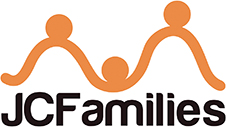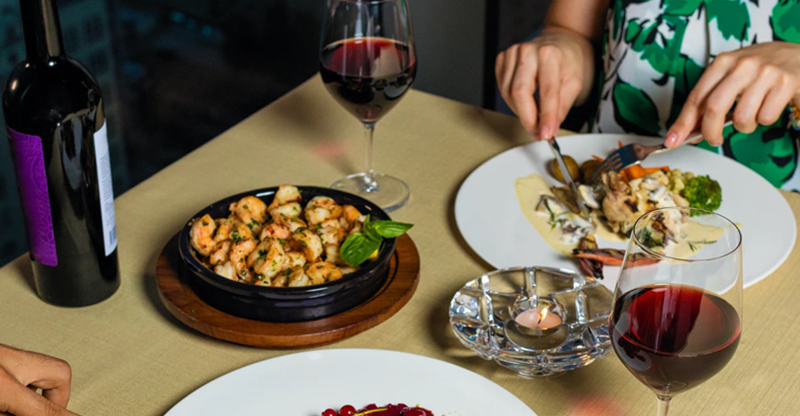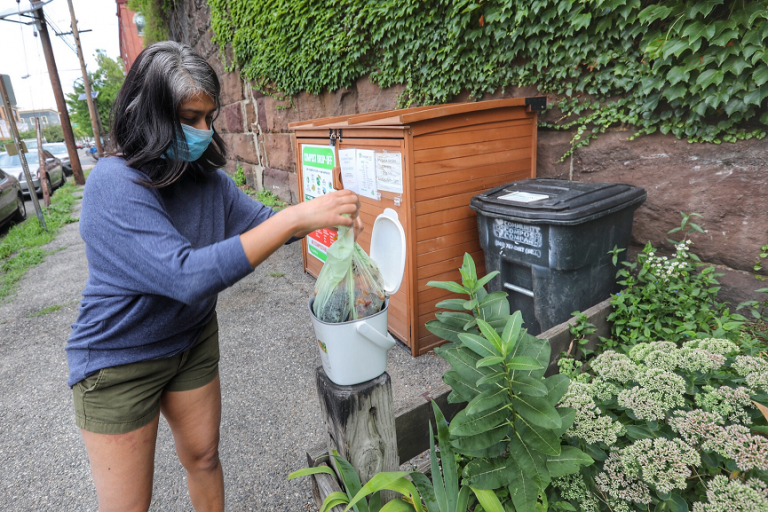Managing Stress, Anxiety and Fear During Coronavirus
Do you feel anxious?
With everything happening around us, anixety, stress and fear are very common. Anxiety is NORMAL Feelings of hopelessness, and sadness, are normal at this time. It’s ok to cry when your heart is weighed down with grief. It’s ok to cry and feel the struggles.
It’s ok to be worried, to be scared at the uncertainty of whether we or the people we love will make it through, to be anxious that this crisis will worsen inequality for millions on a social justice platform. Don’t forget anxiety and fear can also be expressed as anger. Just remember that you are not alone in this. You may feel a combination of feelings and sometimes it’s hard to know what’s what. That’s ok too. You will cycle through these emotions. You will reach a point where you will feel grounded and these tips can definately help.
We spoke to Divya Dodhia, a local Jersey City therapist who gave us some helpful tips and resources that can really help all of us deal with this stressful time in our lives.
What can we do to reduce anxiety, fear and stress during the coronavirus outbreak?
- Find new ways to connect with co-workers, friends and family using apps such as
Whatsapp, Google Duo, Facetime, Zoom, etc. - Connection can lessen anxiety and bring you closer to center. Take the time to process and talk. Create a virtual happy hour — mocktails
welcome — or game night. - Reframe how you think. An example is: mentally reframe “social distancing” as
more of a “physical distancing.” Realize you can still be social and talk to friends and family but just not physically. - Keep your daily routine as consistent as possible, example, getting ready in the morning like you would for the office.
- Focus on what you can control instead of what you can’t.
One thing you have power over: your own self-care and health practices, includes
getting rest, eating nutritious foods, staying hydrated, moving your body,
washing your hands thoroughly and often, and practicing physical distancing. - Cut back on your media exposure. There is a lot of false information that has circulated on
social media, so it’s best to look to reputable sources, like the Centers for Disease
Control and Prevention (CDC) or the World Health Organization (WHO). - Make sure you have enough of any medications you take. Caring for your mental health is especially crucial now ― and that includes
having an adequate supply of your mental health prescriptions. Know that a little bit of anxiety isn’t necessarily a bad thing.
What are your top tips one can follow when they feel these emotions?
- Write down specific worries you have about how coronavirus may disrupt your
life. If you start feeling overwhelmed, take a break. - Make a list of all the possible solutions you can think of. Try not to get too hung
up on “perfect” options. Include whatever comes to mind that could help you get
by. Sometimes it can be just moment to moment. - Focus on concrete things you can problem solve or change, rather than
circumstances beyond your control. - Don’t hesitate to mute keywords or people who are exacerbating your anxiety. The coronavirus is not the only thing that’s contagious. So are emotions! Avoid talking about the virus with people who tend to be negative or who reinforce and ramp up your fears. It’s ok to exit some chat groups for a while. Turn to the people in your life who are thoughtful, level-headed, and good
listeners. - Read a good book, watch a comedy, play a fun board or video game, make something—whether it’s a new recipe, a craft, or a piece of art. It doesn’t matter what you do, as long as it takes you out of your worries.
- Get out in nature, if possible. Sunshine and fresh air will do you good. Even a walk around your neighborhood can make you feel better. Just be sure to avoid crowds, keep your distance from people you encounter, and obey restrictions in your area.
- Find ways to exercise. Staying active will help you release anxiety, relieve stress, and manage your mood. While the gym and group classes are out, you can still cycle, hike, or walk. Or if you’re stuck at home, look online for exercise videos you can follow. There are many things you can do even without equipment, such as yoga and exercises that use your own bodyweight.
- Avoid self-medicating. Be careful that you’re not using alcohol or other substances to deal with anxiety or depression. If you tend to overdo it in the best of times, it may be a good idea to avoid for now.
- Doing kind and helpful acts for others can help you regain a sense of control over your life—as well as adding meaning and purpose.
Be kind to others. An infectious disease is not connected to any racial or ethnic group, so speak up if you hear negative stereotypes that only promote prejudice. With the right outlook and intentions, we can all ensure that kindness and charity spread throughout our communities even faster than this virus. - Remind yourself that this is a temporary period of isolation to slow the spread of
the virus. - Remember that your effort is helping others in the community avoid contracting
the virus. - Respecting that everyone needs space. Is there a plan that you can develop as a
family? - Meals prep: involving kids, packing lunches if possible, using leftovers, using a
white board to plan the meals. - Don’t forget to ask for help.
- Use a white board: put in some structure but roll with it as things change. Have kids be part of routine and structure (might take a bit longer but
encourages independence and how to handle adverse situations, they don’t feel out of control). - Please be kind to yourself and patient with yourself.
Do diet and exercise play a big role?
Absoultely!
Diet:
- Caffeine is one of the most common dietary triggers.Other substances, including sugar and alcohol, have also been found to impact mood and feelings of anxiety.
- A diet rich in whole grains, vegetables, and fruits is a healthier option than eating a lot of simple carbohydrates found in processed foods.
- Do not skip meals
- Foods rich in zinc such as oysters, cashews, liver, beef, and egg yolks have been linked to lowered anxiety.
- Foods naturally rich in magnesium may, therefore, help a person to feel calmer. Examples include leafy greens, such as spinach and Swiss chard. Other sources include legumes, nuts, seeds, and whole grains.
- A study in the journal Psychiatry Research suggested a link between probiotic
foods and a lowering of social anxiety. Eating probiotic-rich foods such as pickles,
sauerkraut, and kefir was linked with fewer symptoms.
Foods designated as high in antioxidants by the USDA include:
Beans: Dried small red, Pinto, black, red kidney
Fruits: Apples (Gala, Granny Smith, Red Delicious), prunes, sweet cherries,
plums, black plums
Berries: Blackberries, strawberries, cranberries, raspberries, blueberries
Nuts: Walnuts, pecans
Vegetables: Artichokes, kale, spinach, beets, broccoli
Spices with both antioxidant and anti-anxiety properties include turmeric
(containing the active ingredient curcumin) and ginger.
Excercise:
- Yoga involves movements, breath work, and meditation that can assist in enhancing feelings of calm and clarity.
- Engaging in exercise diverts you from the very thing you are anxious about.
- Moving your body decreases muscle tension, lowering the body’s contribution to feeling anxious.
- Exercise activates frontal regions of the brain responsible for executive function, which helps control the amygdala, our reacting system to real or imagined threats to our survival.
- Exercising regularly builds up resources that bolster resilience against stormy
emotions. - Meditation and grounding techniques will be helpful during this time. Even if you are not into it, this time, give it a try: Bring your attention to your breath and your body. Focus all of your attention on the here and now: noticing the sights, sounds, and smells around you and what you’re feeling in your body. Continue to breathe slowly in and out—gently bringing your mind back to your body and breath every time it drifts—until you feel more calm.
When should someone seek professional help?
- Fear and worry that is paralyzing you about your own health and the health of
your loved ones. - Changes in sleep or eating patterns.
- Difficulty sleeping or concentrating.
- Worsening of chronic health problems.
- Increased use of alcohol, tobacco, or other drugs.
- Extreme irritability and losing your cool.
- Feeling that the marriage is in trouble.
- Having panic attacks (shortness of breath, heart pounding, sweating)
- Feelings of hopelessness, worthlessness.
- Difficulty dealing with day to day tasks.
- Feelings of failure or inability to cope during the most basic tasks
A lot of crying. - Unsure how to deal with parental stress (constant feeling of struggle).
Are there any resources you recommend that can help with this?
ADAA Reviewed Mental Health Apps
- Anxiety Coach ($4.99)
- Breathe2Relax (free)
- Headspace (few sessions are free)
- Calm (free with in-app purchase)
- Colorfy (focused meditation through art)
- Dare- Break free from anxiety (free with in-app purchase)
About Divya Dodhia(LCSW):

Divya Dodhia, LCSW, is a therapist specializing in counseling for children and families. Divya is a Licensed Clinical Social Worker (LCSW) in the state of New Jersey, with a Masters in Social Work from Fordham University, and Bachelors in Social Work from the University of Windsor, Canada. Divya has over 10 years experience as a therapist and developmental interventionist at Newark Beth Israel Hospital, YWCA of Union County, Hudson Milestones, Trinitas Hospital and Jersey City Medical Center. Divya’s background also includes providing individual and group therapy to adults and children with mental health issues, and survivors of domestic violence. Divya’s therapeutic modalities include Cognitive Behavioral Therapy (CBT), Coaching, Eclectic Therapy, Family Therapy, Marital Therapy, Interpersonal Therapy, Narrative and Relative Therapy. She has lived in Jersey City for 17 years and has two daughters.[/vc_column_text][/vc_column][/vc_row]






